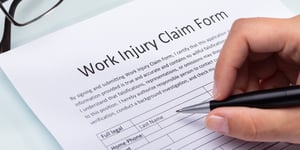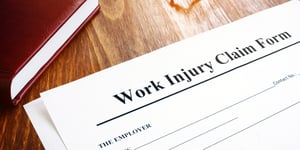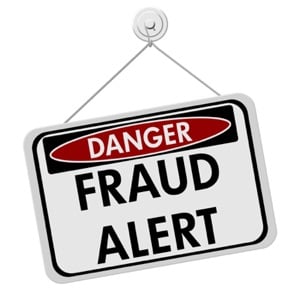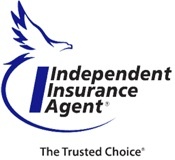 The act of workers' compensation insurance fraud occurs when someone deliberately distorts their injury or illness status to obtain benefits they do not qualify for. The identification of fraudulent claims, along with legal consequences and preventive measures, helps organizations reduce their exposure to fraud risks.
The act of workers' compensation insurance fraud occurs when someone deliberately distorts their injury or illness status to obtain benefits they do not qualify for. The identification of fraudulent claims, along with legal consequences and preventive measures, helps organizations reduce their exposure to fraud risks.
Identifying Red Flags
Employers and insurance companies should be aware of several red flags when assessing workers' compensation claims. These indicators can help to detect potentially fraudulent activity:
- Inconsistent Medical Reports: Medical reports that do not match the nature of the injury claimed by an employee serve as a sign of fraud. When the worker's account of what happened does not match the medical diagnosis, it requires additional investigation.
- Delayed Reporting: A worker who delays reporting an injury or illness to their employer may be attempting to fabricate or exaggerate the incident. Most workers' compensation systems require immediate reporting as their standard protocol.
- Unwitnessed Injuries: If a worker claims to have been injured without any witnesses, especially in situations where injuries are likely to be seen by others, this raises suspicion. Fraudsters often try to conceal their actions to avoid detection.
- Exaggerated Symptoms: Some workers may downplay or exaggerate their symptoms, especially in cases where there is no visible injury. Overstated pain or incapacity can be a red flag for fraud.
- Frequent Job Changes or Inconsistent Employment History: Employees with a history of frequently changing jobs, especially when there are multiple workers' compensation claims across different employers, might be more likely to commit fraud.
Legal Consequences
The practice of workers' compensation fraud causes damage to the system while resulting in severe legal penalties. Workers who commit fraud face both criminal prosecution and civil financial penalties.
- Fraudulent workers' compensation claims can lead to criminal prosecution, which may include fines and imprisonment.
- In addition to criminal penalties, individuals who commit workers' compensation fraud may also be required to repay any benefits they received fraudulently.
- Employees found guilty of workers' compensation fraud can lose their right to receive benefits, and in some cases, they may face termination from their jobs.
Preventative Measures
A proactive strategy can stop workers' compensation fraud. Several measures exist that businesses and insurers can implement to decrease the occurrence of fraudulent claims.
- Workers need to understand from their employers why they must report injuries both quickly and correctly.
- A complete claims review process needs to be established. The review process involves medical report verification and witness statement assessment, along with injury circumstance validation.
- Employers should create safe work environments through their investment in workplace safety and proper training, which decreases workplace injuries and subsequent fraud opportunities.
- The implementation of fraud detection software and systems allows organizations to detect patterns and anomalies in claims.
- A zero-tolerance policy regarding fraud should be enforced through clear communication to serve as a preventive measure.
By understanding how to identify, address, and prevent workers' compensation fraud, businesses can protect their interests and ensure that the system remains fair for all parties involved.
We Can Help Your Company with Workers’ Compensation Insurance
Looking for an experienced and reliable workers' compensation insurance agency? Contact American Insuring Group online, or call (800) 947-1270 or (610) 775-3848. Our independent agents will find you the perfect policy at an excellent price.
Contact us today to get started!



 In Pennsylvania, almost every employer is required to carry
In Pennsylvania, almost every employer is required to carry  When a workplace accident occurs, it’s in the employer's best interest to investigate the accident. Investigations provide many benefits, including lower
When a workplace accident occurs, it’s in the employer's best interest to investigate the accident. Investigations provide many benefits, including lower  One way to lower
One way to lower  In most states, including Pennsylvania, almost all employers are required to carry
In most states, including Pennsylvania, almost all employers are required to carry 
 You’ve purchased the appropriate
You’ve purchased the appropriate  Most employers in Pennsylvania are required to carry
Most employers in Pennsylvania are required to carry  You often hear horror stories about fraudulent
You often hear horror stories about fraudulent  The majority of employees are honest, and the majority of
The majority of employees are honest, and the majority of  To learn more about preventing and recognizing WC Fraud and ways to save on Workers’ Compensation Insurance, contact the WC specialists at American Insuring Group at
To learn more about preventing and recognizing WC Fraud and ways to save on Workers’ Compensation Insurance, contact the WC specialists at American Insuring Group at 



